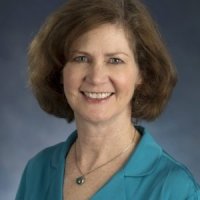Venezuela’s Presidential Elections 2012: Report of a Study Mission
On October 7, 2012, Venezuelans will go to the polls to elect a president for the next six-year term. The election pits current President Hugo Chávez, who has held office since 1998, against Henrique Capriles Radonski, the opposition candidate chosen in a February 2012 primary. Not since President Chávez was first elected has there been so much uncertainty about Venezuela’s future, not only because of the unknown severity of his illness with cancer, but also because the opposition’s unity around a single candidate has made the election competitive as never before.
In light of the importance of this election for Venezuela as well as for Latin America as a whole, the Woodrow Wilson Center’s Latin American Program and IDEA Internacional commissioned two renowned Latin American experts with vast knowledge of and experience with electoral processes, Dr. José Woldenberg, former president of Mexico’s Federal Electoral Institute (IFE) and professor, Political Science Faculty, Universidad Nacional Autónoma de México (UNAM); and Dr. Genaro Arriagada, former minister of the presidency of Chile and former ambassador of Chile to the United States, to visit Venezuela and prepare a report.
This report, available in its entirety in Spanish, wish Spanish and English language executive summaries seeks to answer questions such as:
- What are the conditions within which the elections are taking place?
- Is there a level playing field?
- If not, is there a chance that the opposition could win?
- If it wins, will it be allowed to take power?
- What kind of mechanisms are there to assure the transparency of the vote itself?
On September 7th, the Wilson Center was pleased to host the report's authors, joined by Dr. Jennifer McCoy, director of the Americas Program, The Carter Center, and professor of political science, Georgia State University, for a discussion of the report's findings. Amongh the most key finding are:
Reliability of the Electoral Process: The electoral system has undeniable strengths and is technologically very advanced. If it functions adequately, it ensures that aspects fundamental to the monitoring and oversight of the electoral process—by parties, citizens, and observers—are transparent. One essential flaw is the politicization of the National Electoral Council, which explains why it is so unenthusiastic about exercising some of its regulatory functions, especially with respect to the abuse of official publicity.
Conditions of Competition: the greatest weakness of the process lies in the inequitable conditions of competition. Media coverage is not even moderately balanced. Campaign financing is particularly opaque, although it is clear that the overwhelming majority of spending is by the government candidate. The government’s social programs, the so-called missions, are considered to be a decisive element in President Chávez’s support among vast sectors of the population, especially the poor.
Polarization: The existence of two major electoral blocs is one indication of the deep polarization. On the government side, politics is experienced as a kind of “revolutionary gesture” in which adversaries appear as irreconcilable enemies, agents of foreign interests, or defenders of unmentionable minority interests. The opposition has made efforts to temper polarization, emphasizing the need for unity. Although the government and opposition embody two different languages, two different conceptions, two opposing ideas unable to forge common ground, the Constitution nonetheless represents a form of common ground,
The Coming Months: The cancer President Chávez is suffering is one the great mysteries in Venezuela today. Putting aside such a scenario, there are a relatively limited number of scenarios that could emerge as a result of the presidential elections. Possibilities include: (A) President Chávez wins and is recognized by the opposition. (B) President Chávez wins and the result is not recognized by all or part of the opposition, causing an eventual split. (C) Capriles wins and his victory is recognized by the government. (D) Capriles wins and his victory is not recognized by the government, the most complex and potentially disruptive scenario.
Speakers
Vice President, Board of Universidad de la Americas; Former Ambassador of Chile to the United States

Hosted By

Latin America Program
The Wilson Center’s prestigious Latin America Program provides non-partisan expertise to a broad community of decision makers in the United States and Latin America on critical policy issues facing the Hemisphere. The Program provides insightful and actionable research for policymakers, private sector leaders, journalists, and public intellectuals in the United States and Latin America. To bridge the gap between scholarship and policy action, it fosters new inquiry, sponsors high-level public and private meetings among multiple stakeholders, and explores policy options to improve outcomes for citizens throughout the Americas. Drawing on the Wilson Center’s strength as the nation’s key non-partisan policy forum, the Program serves as a trusted source of analysis and a vital point of contact between the worlds of scholarship and action. Read more
